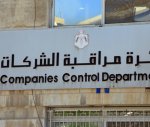You are here
Stakeholders agree Jordan the underdog in Turkey FTA, but differ on remedy
By Mohammad Ghazal - Nov 14,2017 - Last updated at Nov 14,2017
AMMAN — As some industrialists called for reviewing or cancelling the free trade agreement (FTA) between Jordan and Turkey, others called for giving it a chance and exerting more efforts to make the best out of the deal while taking the interest of national industries into account.
The deal, which Jordan and Turkey signed in 2011, governs free trade between the two countries, calling for transferring Turkish technical know-how to Jordan, assisting Jordanian industries develop and attracting investment to the Kingdom, said the industrialist.
Critics said the deal has resulted in a huge flow of Turkish exports to Jordan and major imbalances in the trade exchange, adding that Jordan has not benefited yet from the technical assistance or investments pouring into the country, while advocates said the deal has enabled Jordanian products to enter the Turkish market and has potential for further cooperation.
“This is a win-lose situation where Jordan is the losing partner… We as industrialists opposed the deal since the very beginning and we expected the serious consequences on our economy and industries,” Nael Husami, general director of Amman Chamber of Industry, told The Jordan Times in a recent interview.
“We want the free trade deal with Turkey to be completely revoked because our losses are increasing because of it,” he said.
Turkey’s exports to Jordan, excluding fuel derivatives and products, rose from $528 million in 2014 to $650 million in 2016.
Turkey’s textile exports to Jordan rose by 125 per cent in 2016 to $72.5 million compared with $23.2 million in 2014. Furniture exports from Turkey to Jordan rose from $10.6 million in 2014 to $16.9 million in 2016, according to Husami.
Jordan’s exports in 2016 to Turkey stood at about $86 million, of which $62 million was of fertilisers.
Husami added: “We have not seen any know-how transfer to Jordanian industries or investments coming to the country…all that happened after the deal is that Turkey’s exports to Jordan rose sharply and our exports to Turkey are negligible.”
He added that the Turkish government provides many incentives and facilities for investments and industries and they are used to mass production unlike the industries in Jordan.
Husami sounded the alarm that several textile and carpet factories have closed after the deal, expecting the situation to get worse.
The owner and manager of the first carpet factory in Jordan said he was considering the relocation of his factory due to increased losses the company incurred after the signing of the free trade agreement with Turkey.
“I believe in the near future, if the situation continues as is, I will have to relocate before going out of business. The deal with Turkey is disastrous to us,” Anwar Kaluti, owner and manager of Arab Weavers Union Company PLC, told The Jordan Times recently.
The company, which was established in 1988, had employed around 450 and had around 12 manufacturing machines until 2014. After the signing of the deal with Turkey, the company reduced the number of its employees to 125 currently and to four manufacturing machines.
“When the deal went into effect, carpets from Turkey started to sweep the markets and they were sold at prices that are lower than our costs, which resulted in huge decline in sales and revenues,” he said.
Kaluti explained that in Turkey “industries can get loans without interest rates as support from the government and there are many incentives and prices of energy are cheaper and there are tax exemptions. Here, prices of electricity are high, there are many taxes and the situation is becoming increasingly more difficult…our costs are higher than those factories in Turkey,” he said.
“Many factories have closed or relocated to Egypt, Dubai or Turkey in the sector and I am considering to follow suit. This is a bad deal as far as we are concerned,” Kaluti added.
Turkish Ambassador in Amman Murat Karagöz said he was aware of the complaints and said the solution was not to review or cancel the deal but rather make the best out of it and try to make more benefits.
The ambassador said during a recent interview with The Jordan Times that the remedy was not to cancel the free trade agreement or linger on the message that it needs to be reviewed.
“We should rather check how we can make the existing agreement more beneficial through its current form,” he said.
Jordan’s exports to Turkey are limited. There is an imbalance of one to six. Most of it is Turkish exports to Jordan, according to the ambassador.
To increase Jordanian exports to Turkey, the envoy said there was a need for increased participation by Jordanian businesspeople in Turkish trade fairs to promote their industries and businesses.
The Turkish government, he said, was also exerting its utmost efforts to encourage Turkish investors to come to Jordan for businesses.
Direct Turkish investments in Jordan stand at about $300 million, which is “not enough”, the diplomat said.
“We also need Jordan to promote itself more to show [potential investors] why they should come and invest here. Jordan should not stand still. It takes two to tango,” said the ambassador.
The diplomat added that Turkey was willing to increase technical assistance to Jordan “but we need guidance on which areas, is it SMEs, tourism, any other field?”
Other industrialists were optimistic and said in spite of the challenges there was a need for giving the deal a chance for the benefits of the ties between the two countries.
“Let us be honest and realistic. In any free trade agreement, there is always one side that benefits more than the other… I am not with cancelling or revisiting the FTA with Turkey. I believe the best solution is to work on activating the current articles and terms in the agreement and optimally utilising it to the maximum rather than complaining about it,” Jordan Chamber of Industry General Manager Maher Mahrouq told The Jordan Times recently.
“It is true that the trade balance is heavily in favour of Turkey, but we should focus on the other aspects of the agreement that are related to attracting investments and benefiting from technical assistance and know-how from Turkey,” he added.
“The FTA gave our industries the opportunity to enter the Turkish markets and we should work harder to attract investors to start joint projects and co-produce some commodities which will help us enter new markets whether in the Arab world, Africa or even Europe,” he added.
He called for a practical and realistic solution and stressed on the need to offer incentives and facilities to attract investments into Jordan.
“We also need to be very specific and certain about which technical assistance we seek to get from the Turkish side to support our industries as they [Turkey] are ready” Al Mahrouq added.
Fathallah Emrani president of the General Trade Union of Workers in Textile, Garment and Clothing Industries, said in spite of some of its negative consequences, the solution was not to revoke the deal.
“I am with giving it a chance and finding solutions in its current format. We are keen on the ties with Turkey and we need to find a solution for the benefit of the two countries,” Emrani said.
“I believe the problem is that we were not consulted about it at all. The government needs also to be keen on protecting the national industries… There are many factories that closed, such as small factories of textile and carpets,” he said.
“Owners of factories became merchants, as it is more profitable for them to import and sell rather than manufacture,” Emrani said, confirming that dozens of employees have been laid off.
In spite of several attempts by The Jordan Times, the Ministry of Industry, Trade and Supply was not available for comment.
However, in a statement recently carried by the Jordan News Agency, Petra, Yousef Shamali, secretary general of the Ministry of Industry, Trade and Supply, said although the deal was a significant achievement to enhance economic ties between the two countries, it has not resulted in positive impacts on Jordan.
The government, he said, was planning to relook into the deal with Turkey if it does not lead to increasing Jordanian exports or attracting Turkish investments into the Kingdom.
Related Articles
AMMAN — Suspending the free trade agreement (FTA) with Turkey was good news for Jordanian industries, but traders cried foul as they claimed
AMMAN — Jordan will impose custom duties on Turkish imports as of November 22, as the free trade agreement (FTA) between the two countries e
AMMAN — Turkish authorities are ready to look into Jordan’s conditions to reactivate the suspended free trade agreement (FTA) between the tw
















